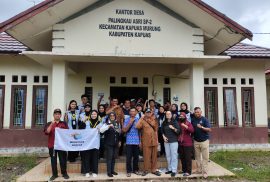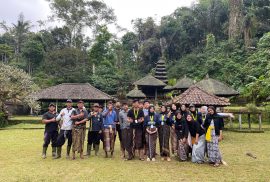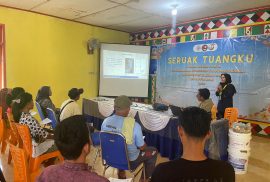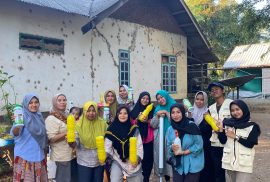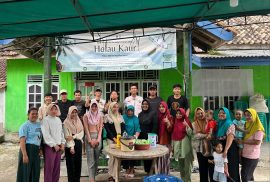The Faculty of Agriculture, Universitas Gadjah Mada (UGM) once again carried out a community service program by introducing an innovation in the use of fermented duckweed (Lemna sp.) as feed for fish and livestock. The activity was held at the Al-Dzikro Orphanage Foundation, Imogiri, Bantul, as an effort to promote food self-sufficiency while also encouraging productive economic enterprises within the orphanage.
Duckweed, or kiambang, is a high-protein aquatic plant with great potential as an alternative feed source. Through the fermentation process, the nutritional value of duckweed can be enhanced and its digestibility improved, thereby not only reducing feed production costs but also opening new business opportunities based on local resources.






